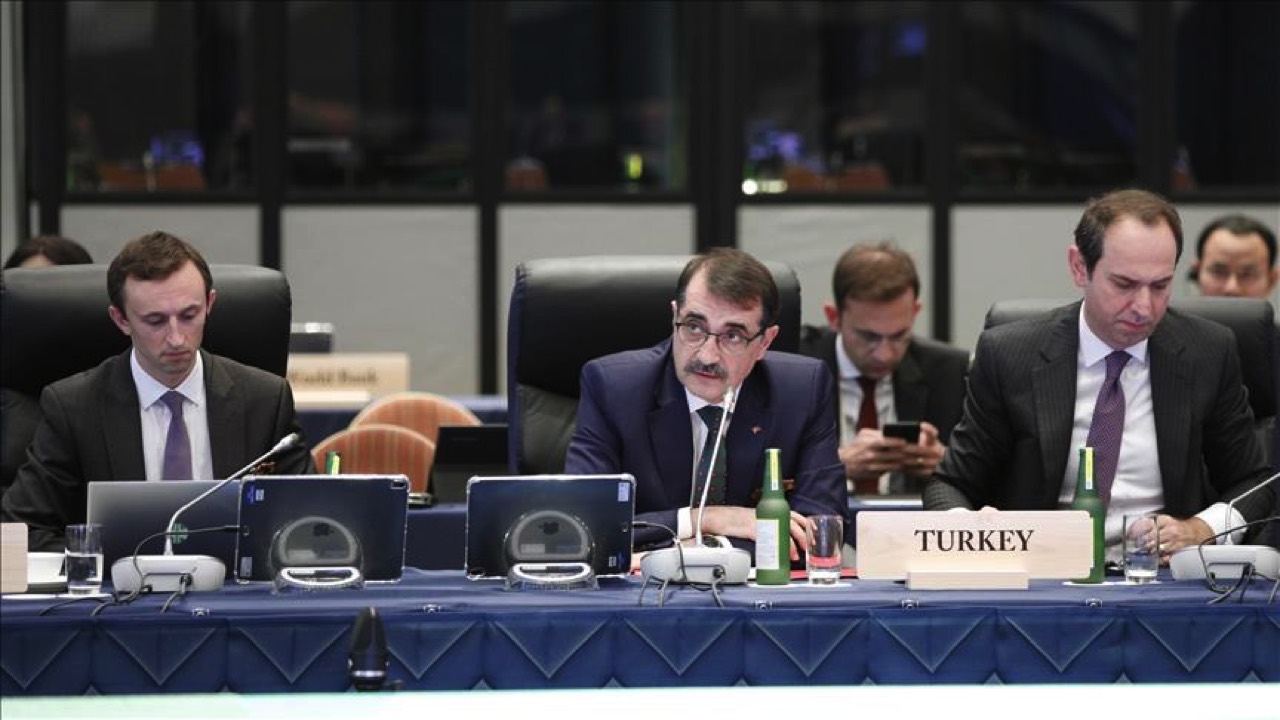Turkey aims to increase share of renewables
Turkey also aims to benefit from vast coal reserves while paying utmost importance to implementation of clean technologies, says Minister Donmez

Turkey aims to increase the share of the domestic and renewable sources up to two-thirds of the country's electricity production by 2023, said Fatih Donmez, Turkey's Energy and Natural Resources Minister on Sunday at a G20 meeting in Japan.
"Last month another wind auction for 1 gigawatt capacity was also successfully completed," Donmez said during a session at the G20 Ministerial Meeting on Energy Transitions and Global Environment for Sustainable Growth in 2019 in Nagano.
"For a sustainable future we have to benefit from energy efficiency, as well as renewable energy, fossil fuels and nuclear power technologies," Donmez noted.
He said that in 2017, Turkey became the member of "1 GW Club" of geothermal.
The Minister noted that Turkey's goal is to exceed 2 GW by 2023.
"Our recently announced National Energy Efficiency Action Plan sets out actions to implement a reduction of 14% of primary energy consumption by 2023, via a strategy which includes around $11 billion of planned investment," Donmez said.
He stressed that Turkey also aims to benefit from vast coal reserves while paying utmost importance to the implementation of clean coal technologies.
"We attach great importance to the application of clean coal technologies. Excluding coal also blocks the research and development and improvements to be made in this area," Donmez said.
Donmez said that Turkey has strong will to include nuclear energy to primary energy supply starting from 2023 by commissioning the first unit of Akkuyu Nuclear Power Plant.
Russia's Rosatom is constructing Turkey's first nuclear plant in the southern province of Mersin. The plant, comprising four units, each with a capacity of 1,200 megawatts, will meet about 10 percent of Turkey's electricity needs.
"I would like to emphasize one more time that base load power sources such as nuclear and fossil fuels are necessary to increase utilization of intermittent renewable energy," Donmez said and added, "Turkey values flexibility in natural gas as well. By building world-class LNG terminals including FSRUs, transmission and gas storage infrastructure investments, Turkey can provide flexibility to its region as well."
He said that just like energy resources, energy innovation also needs diversification.
"We have started a startup initiative to integrate artificial intelligence, IoT, cyber security and electric mobility faster into our energy portfolio. We are also taking important steps regarding the exploration of sources. Our hydrocarbon exploration and drilling activities have been continuing. We aim to bring our resources into the economy with the help of the private sector on a win-win basis," he said.
Energy and environment ministers of the G20 countries on Saturday gathered in Japan for the first time in the group's history.
The meeting is set to conclude later Sunday.
The G20’s membership is made up of 19 individual countries plus the European Union. The group's economies account for around 90% of gross world product and 80% of world trade.



